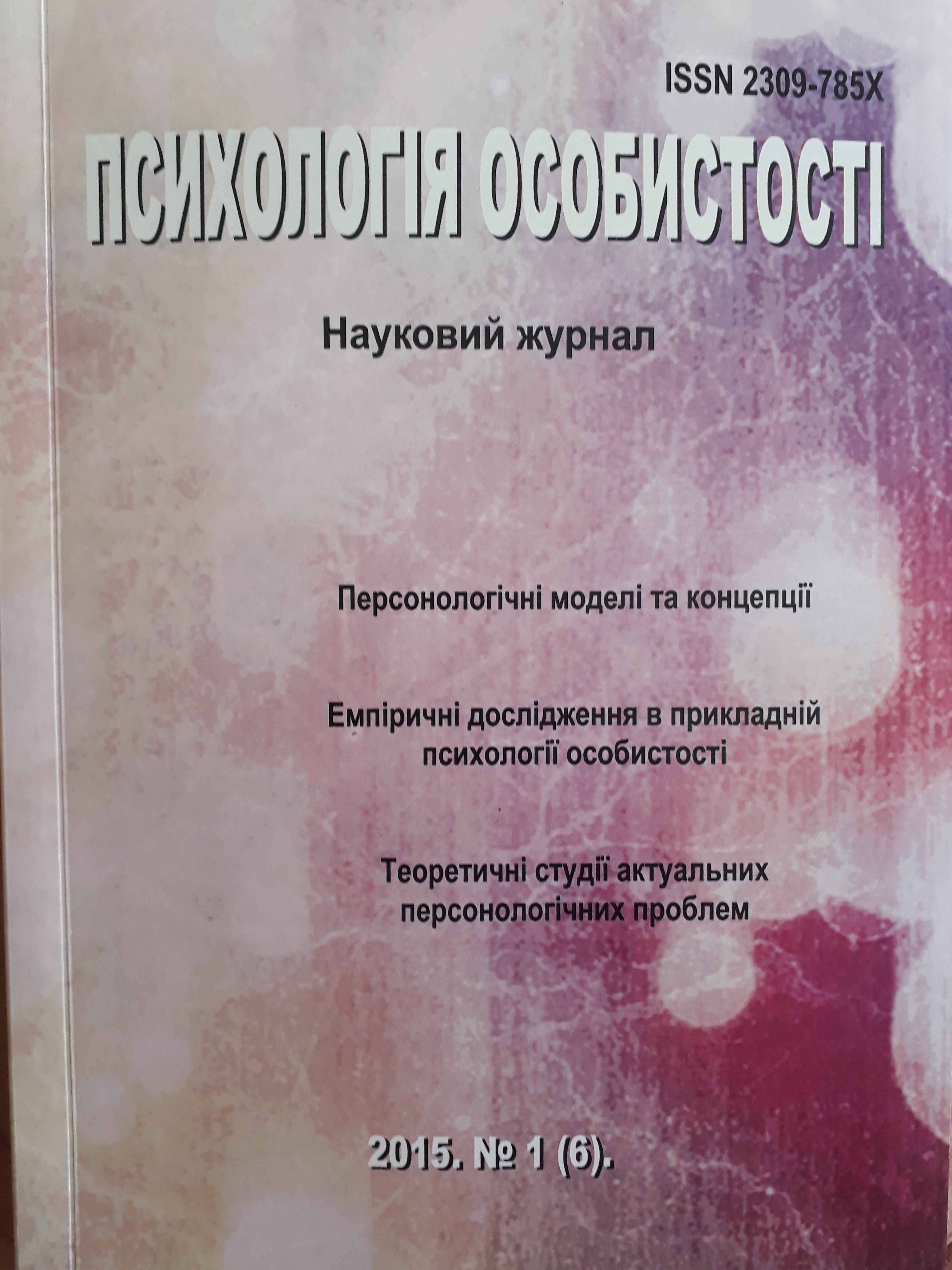ПОЗИТИВНА СУБ’ЄКТНО-ЦІННІСНА МОДЕЛЬ ПЕДАГОГІЧНОГО СПІЛКУВАННЯ У ВНЗ ЯК ФУНДАМЕНТАЛЬНО-ТЕХНОЛОГІЧНА ОСНОВА ЙОГО ОПТИМІЗАЦІЇ
DOI:
https://doi.org/10.15330/ps.6.1.117-128Анотація
Стаття містить обґрунтування гуманістичного варіанту модернізації вищої освіти в Україні, заснованій на синтетичній платформі суб’єктного підходу, аксіопсихології особистості і базових концептах позитивної психотерапії. Концептуальне осмислення феномену педагогічного спілкування відбувається крізь призму суб’єктного підходу в психології і педагогіці. Теоретичною основою суб’єктно-ціннісної моделі педагогічного спілкування у ВНЗ стали ідеї аксіогенетичної концепції З.С. Карпенко. Процедурно-методичними засобами реалізації принципу інтегральної суб’єктності у педагогічному спілкуванні у ВНЗ стали психотехнічні напрацювання позитивної психотерапії. Подано логіко-концептуальне зіставлення базових понять суб’єктно-ціннісного та позитивно-психологічного підходів до педагогічного спілкування. Розроблено позитивну суб’єктно-ціннісну модель педагогічного спілкування у ВНЗ, що концентрує інтерес довкола постаті викладача як ініціатора й організатора освітньої взаємодії. Суб’єктність останнього розглянуто як фактичну актуалізацію базових здатностей (Любити і Знати) і похідних від них первинних і вторинних актуальних здібностей як окремих суб’єктних механізмів, що реалізуються в процесі педагогічного спілкування. Баланс первинних здібностей – свободи і прийняття – із вторинними – відповідальністю і справедливістю – розглянуто якреципрокний психологічний механізм оптимізації педагогічного спілкування у ВНЗ. Визначено основні механізми і критерії оптимальності педагогічного спілкування: успішність вирішення завдань навчання у контексті певних умов та раціональність часових витрат.Пізнавальну складовупозитивної суб’єктно-ціннісної моделіпредставлено чотирма основними сферами відображення дійсності: тіло, діяльність, контакти та смисли. Афективну складову моделі розглянуто у чотирьох вимірах – базових емоційних установках: сприйняття себе, партнерська взаємодія, ставлення особи до групи, оточення, громади, а також ставлення до людства в цілому, його майбутнього, формування сенсу власного життя. Почерговий і збалансований вияв первинного і вторинного конструктів освітнього діалогу визначено як механізм збереження гармонійної цілісності педагогічного спілкування, в якому процес професійного самовдосконалення співвідноситься з розвитком ціннісно-смислової свідомості його суб’єктів.
The article provides a justification of humanistic modernization of higher education in Ukraine, founded on synthetic platform of subjective approach, personal axiopsychology and basic concepts of positive psychotherapy. Conceptual understanding of the phenomenon of pedagogical intercourse goes on through the prism of subjective approach in psychology and pedagogy. The theoretical basis of the subject-value model of pedagogical intercourse at the university has been elaborate on the ideas of axiogenesis conception by Z. Karpenko. Procedural and methodological means of the principle of integrated subjectivity in pedagogical intercourse at the university have been made on achievements of positive psychotherapy. Logical and conceptual comparison of the basic concepts of the subject-values and positive psychological approaches to teaching communication has been presented. Positive subject-value model of pedagogical intercourse at the university has been elaborated, it focuses its interest around the figure of the teacher as initiator and organizer of educational interaction. Subjectivity of the teacher is considered to be the actual updating of basic abilities (to know and to love) and their derivatives primary and secondary current abilities as individual subjective mechanisms which implement in the teaching due to communication. Balance of primary abilities - freedom and acceptance - with secondary - responsibility and justice –is considered as psychological reciprocal mechanism of optimization of pedagogical communication at the university. The basic mechanisms and criteria for optimal pedagogical communication, such as problem solving learning success in the context of certain conditions and rational time-consuming, have been determined. Cognitive component of positive subjective-value model is presented by four main areas of reflection of reality: the body, activities, contacts and meanings. Affective component of the model is considered by four dimensions – emotional base units: the perception of myself, partner interaction, the attitude of a person to a group, environment, community, and human attitude to his future, meaning formation of his own lives. Turns and balanced expression of primary and secondary constructs at educational dialogue is definedas mechanism for storing harmonious integrity pedagogical communication in which the process of professional self-improvement correlate with the development of value-semantic consciousness of its subjects.

